Spain's King Felipe VI renounces father's inheritance
- Published
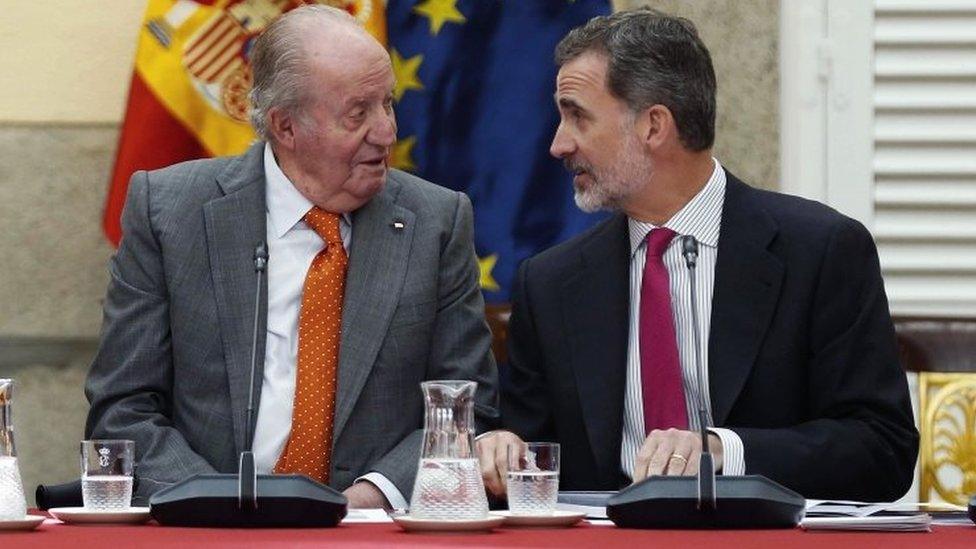
King Felipe VI (right) is trying to distance himself from his father Juan Carlos, Spanish royal analysts say
Spain's King Felipe VI has renounced the inheritance of his scandal-hit father Juan Carlos.
In a statement, the palace said that Juan Carlos, who abdicated in 2014, would also stop receiving an annual grant of €194,000 (£174,800; $217,100).
This comes as the 82-year-old former king is being criticised for his lavish lifestyle.
Juan Carlos, who reigned for 39 years, is also facing an investigation by the Swiss financial authorities.
This follows media reports that he had received $100m in 2008 from Saudi Arabia via an offshore account.
The former monarch has made no comments on the issue.
King Juan Carlos abdicated in June 2014, saying his son Prince Felipe would "open a new era of hope" for Spain
Some royal analysts in Spain say that by renouncing his father's inheritance, King Felipe VI, 52, is trying to distance himself from his father's affairs.
Pivotal role in Spain's modern history
Juan Carlos ascended the throne in 1975 on the death of General Francisco Franco, the right-wing dictator who ruled Spain for 36 years after his victory over Republican forces in the Spanish Civil War.
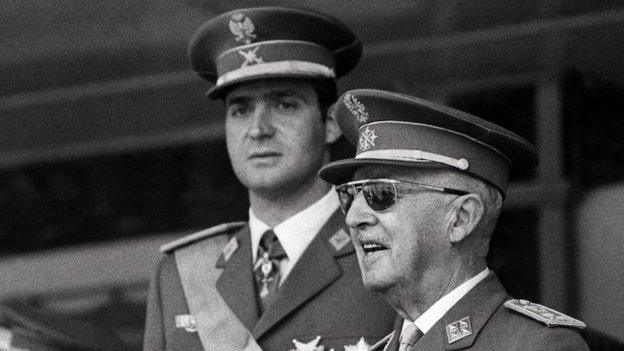
Juan Carlos (l) became king two days after the death of General Franco (r)
Juan Carlos became Spain's first crowned head of state for 44 years.
But he soon ignored Franco's supporters, who wanted an extension to autocratic rule, and ushered in a new system of parliamentary monarchy.
As the years went on the king involved himself less in day-to-day politics, and became more of a figurehead.
He is credited as a stabilising force for independence-minded areas such as Catalonia and the Basque region, and he also helped defuse an attempted coup in 1981.
Until a few years before his abdication his popularity was high, but a lavish elephant hunting trip to Botswana in 2012 and corruption allegations involving his youngest daughter, Cristina, and her husband Iñaki Urdangarin, led to calls for him to step aside.
- Published2 June 2014
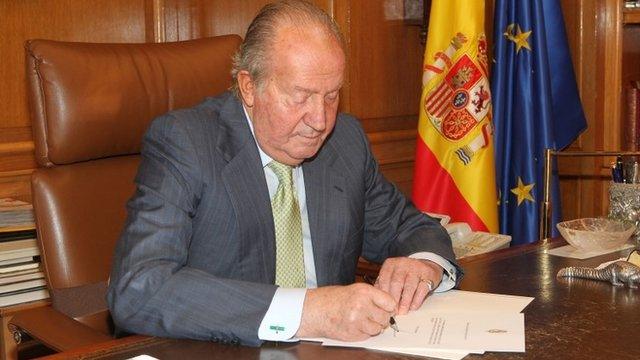
- Published2 June 2014
- Published19 June 2014
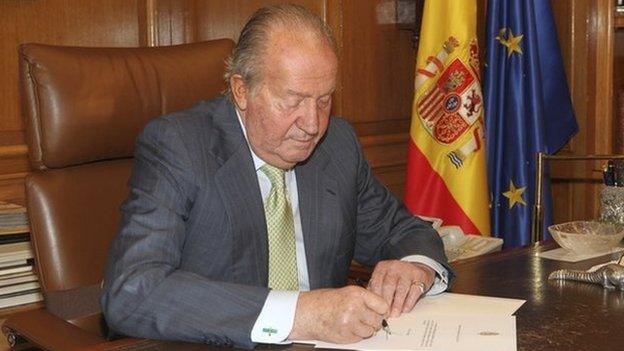
- Published5 January 2013
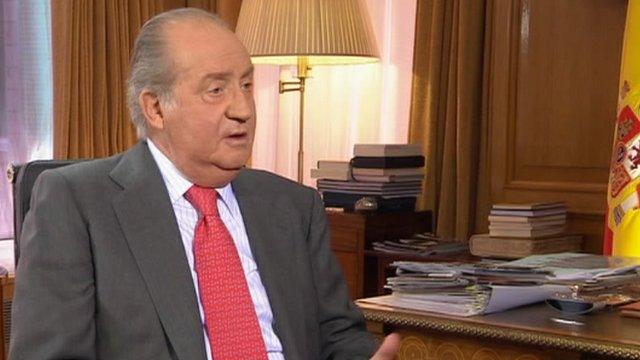
- Published21 August 2023
